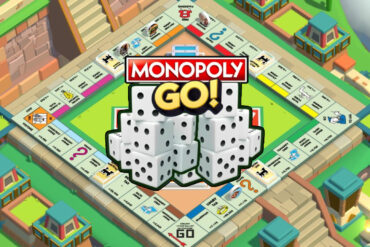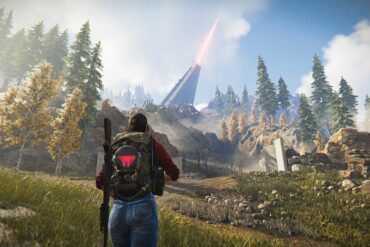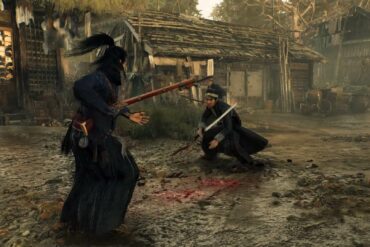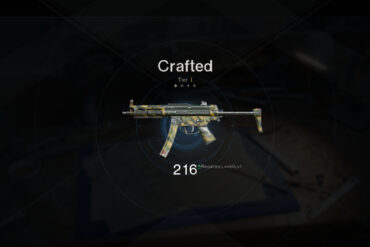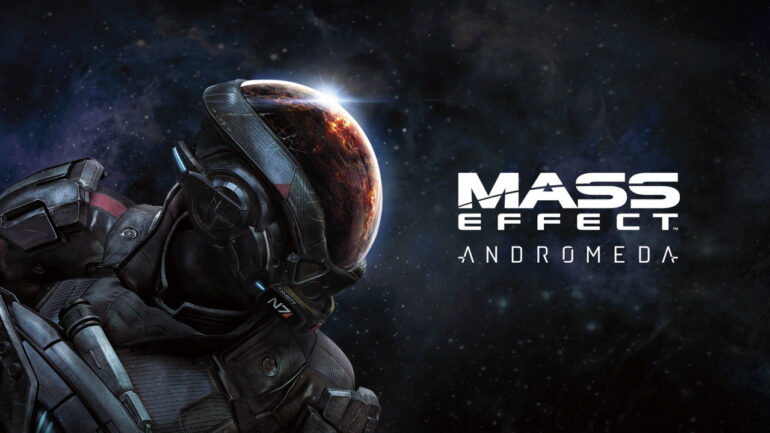Video games are a dime a dozen these days. From first-person shooters to open-world extravaganzas there is plenty of adventuring, puzzle-solving and fishing to be had. It stands to reason then that there are bound to be games that people unequivocally love. From Ghost of Tsushima to Lake, each and every one of us has a favourite game. But, for every excellent title, there seems to be another game that is critically panned by just about every person out there. Well, except for us.
There are so many games that despite everyone hating them we, for one reason or another, love. From a group of survivors trying to make it out alive to spiky-haired hedgehogs and their hijinks these are the games you love to hate and we hate to love.
Mass Effect: Andromeda
I’ve spoken previously on The Game Crater about my love for the Mass Effect series. It’s my favourite series of games after The Legend of Zelda not least of all because Mass Effect is such a beautifully developed science fiction universe with amazing storytelling. After completing the initial three games for the very first time, I was left pondering about all the potential places the next title in the series could go.
That is exactly why when Mass Effect: Andromeda was announced, I was immediately excited. Alas, no matter how much I attempted to sway others, the general fan reception to the game was less than stellar. When the game was released, it felt like people’s initial judgments were confirmed. Admittedly, it was pretty buggy. Fortunately, I was one of the lucky few that did not experience any of the more infamous bugs.
“I was honestly blown away by the story.”
You see, I thoroughly enjoyed Mass Effect: Andromeda and not just because my time with it was bug-free. The difference between my experience and the thousands of others who played was that I went into it with little to no expectations that it would match the same quality as the original trilogy. However, it would seem that everyone did.
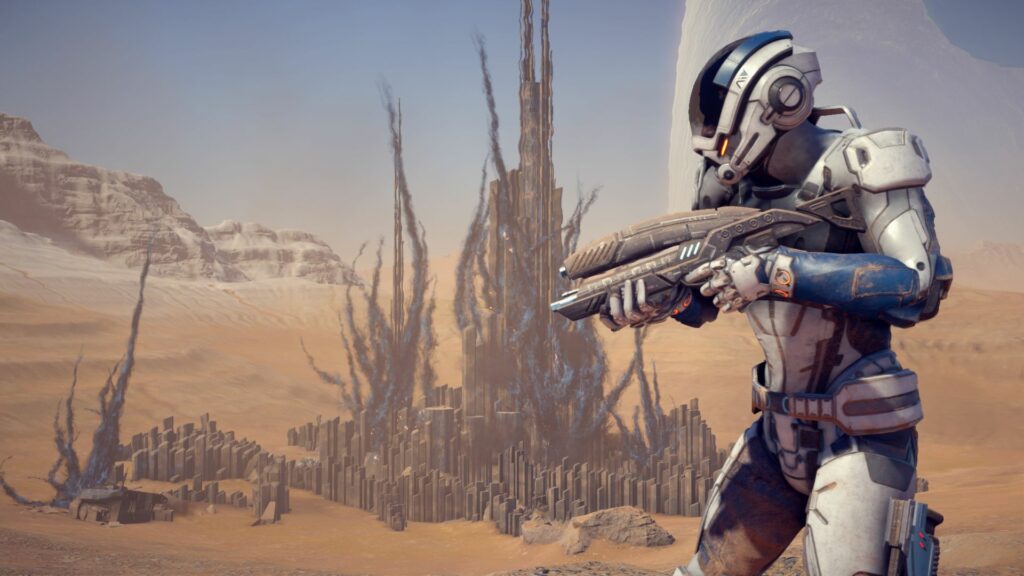
Sure, the game is what The Force Awakens was to the Star Wars franchise in terms of it being rather similar to the previous entries. However, I was never worried about that as I love the originals and was just happy to have more. Also, it is rather commendable that Mass Effect: Andromeda turned out as it did given that it was developed in about 18 months.
Of course, that’s not to say I wasn’t disappointed by a few things. Admittedly, it is annoying that we only get to explore a small cluster of the Andromeda galaxy and are introduced to just two new alien races. However, despite this, I was honestly blown away by the story with its themes of nepotism as well as the exploration of uncharted waters in order to escape the reaper threat. Add to that some solid characters, gorgeous open world-esque segments and some quite frankly cool mechanics – the jump jet is amazing – and there is definitely a game to be loved here. It’s just a shame it did not receive a resurgence the way No Man’s Sky did.
- Intriguing narrative
- Good expansion on the morality system
Duke Nukem Forever
Picture the scene. The world is changing, moving on. Certain jokes simply shouldn’t be made anymore. Muscled men with bad attitudes and big guns are no longer seen as the role models they were back in the ’80s. Then, in the enlightened year of 2011, in struts Duke Nukem, nearly fifteen years late to his own party, and spitting in the face of the politically correct. As I’m sure you can imagine, this didn’t go down too well.
Duke Nukem Forever was absolutely plagued with development issues, and according to Guinness World Records, still has the longest development time of any video game – the “fifteen years late” comment wasn’t an exaggeration, the game really was delayed that long. In the time it took to finally release the game, almost everything had moved on. From the technology used to make games, to the gameplay style and, even more so, the moral compass of the world at large. Duke Nukem Forever was seen as being out of date in every single aspect of its being. And I loved it.
You know what? I get it, I really do. The need to move away from horrible jokes about women, away from idiots with big muscles and bigger guns being seen as “heroes”, away from using steroids to gain a health boost is completely necessary.
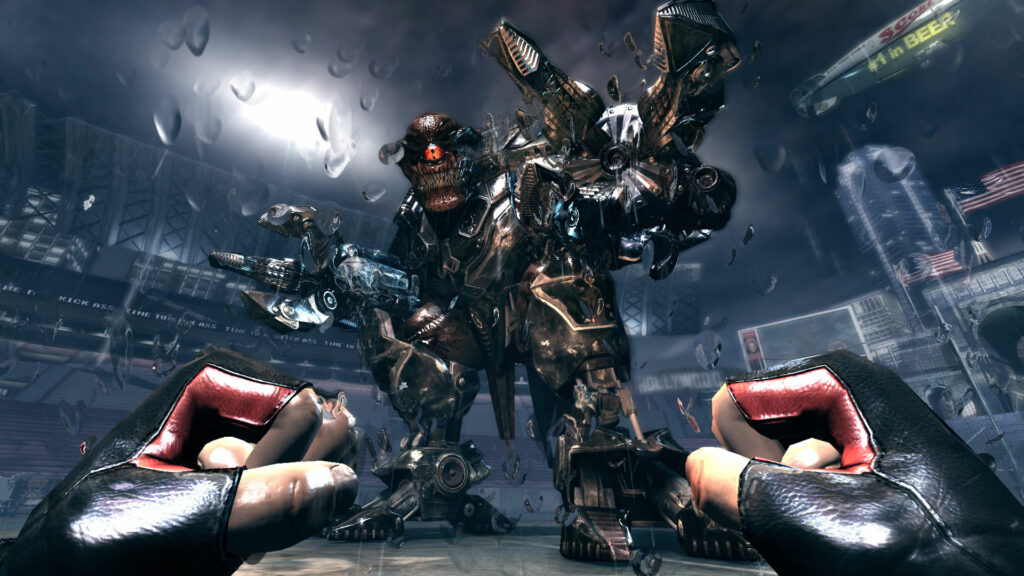
“Duke Nukem Forever brought me back to that golden era of games.”
However, I am also very aware that Duke Nukem Forever is a crass and ridiculous game. I also admit that the controls and graphics were all dated for when it was released. However, I still feel like it has a place in history. Being released when it did, and to such widespread infamy, the game itself stood as a testament to how much the world had moved on in the fifteen years since its initial inception.
For me, it was a trip to the past. Playing Duke Nukem Forever brought me back to that golden era of games and made it feel as if only a year had passed since Duke Nukem 3D launched. It was crass, it was gross even, but I still found the fun in it. Admittedly, a game being so frivolously opposing to political correctness felt quite refreshing.
Don’t get me wrong here, I’m far from being an advocate of steroid use and womanising. But the way the game manages to do this seems so over the top that I couldn’t personally see people taking this seriously anyway. Even should they and claim that Duke is nothing more than a psychopath, well that was kind of the point. Duke Nukem was never meant to be an “everyman” or a “working-class hero”. He was a steroid-fueled caricature of 80’s machismo, and was never supposed to be taken seriously. And I guess it helps to admit… I still laugh at boob jokes.
- Gloriously Anti-PC
- Truly a blast from the past
- Completely over-the-top
Left Alive
It isn’t hard to see why so many people dislike Left Alive. It is clunky, horribly unbalanced and astonishingly broken at times. But like so many of the other games I love that everyone else seems to hate – Decay of Logos, The Technomancer, Elex – there was something there that appealed to me. Amongst all the jank, poor quality animations and broken mechanics, there was a spark of originality that I was drawn to. Surprisingly, it wasn’t the enormous mechs.
While Left Alive is undoubtedly one of the most challenging games I’ve ever had the pleasure of playing, getting through its, at times, arduous 20-or-so hour-long story is honestly rewarding. Sure, the gameplay may let it down here and there. But there is so much to love about Left Alive’s story that it is worth playing through. From its distinctive and well voice-acted trio of protagonists to its grounded and introspective reflection on humanity and morality, Left Alive has more to offer than one may initially believe.
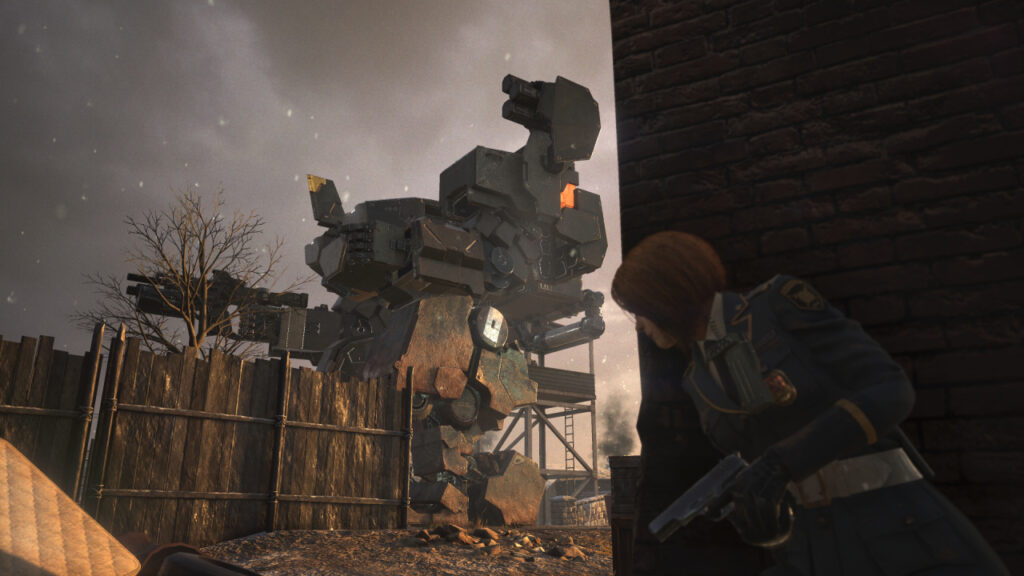
“Left Alive is one of the most rewarding and genuinely interesting games currently available.”
Even outside of its outstanding and frankly under-appreciated narrative, Left Alive’s gameplay is still heaps of fun. Sneaking through each of the game’s enormous and varied environments while desperately trying to survive is as challenging as it is perfectly executed. The tense atmosphere coupled with your limited supplies creates a genuinely satisfying gameplay loop that had me on the edge of my seat.
And that’s not even mentioning the game’s compelling antagonists, excellent soundtrack, phenomenal mech combat, well-animated cutscenes, and stunning visuals. Sure, I can see why people dislike this game so much. It’s unforgiving and far too punishing. It takes a lot of patience and a level of commitment not traditionally found in games. But all of that is worth it to experience what I believe to be one of the most rewarding and genuinely interesting games currently available.
- Intriguing narrative
- Impressive environments
- Intense survival gameplay
- Interesting characters
Sonic Forces
Okay, so I have a confession to make: I love Sonic games. I have ever since I played them back in the late 90s as a young kid who had no idea how to play video games. Back in 2012, I binge-played through all the games again, including struggling through the infamous nighttime sections of Sonic Unleashed and one-hundred-percenting Sonic Generations multiple times. They were fun, mindless and had that good old fashioned platforming that I love (but am terrible at). So, when I saw that Sonic Forces was bringing back the “Classic” and “Modern” levels that I enjoyed so much in Generations, I was excited.
Look, objectively it’s not a fantastic game. The physics are wonky, the storyline makes no sense and the hub world is confusing. But there are some wonderful parts about it too. For starters, the music is great (but when has it not been in a Sonic title?) and the “Modern” Sonic levels are as fun to boost through as they are stunning to look at when you slow down.
“Of course, if you go into the game expecting a AAA experience then you may not have a great time.”
But what really endears me to this game is its ridiculous plot. The best way to summarise it would be that Sonic and his friends have started an underground resistance to fight a war against Eggman and you play as a Sonic OC that has just joined the group. It takes itself so seriously and hearing the brightly coloured anthropomorphic animals talking about the war in deadpan voices never fails to crack me up.
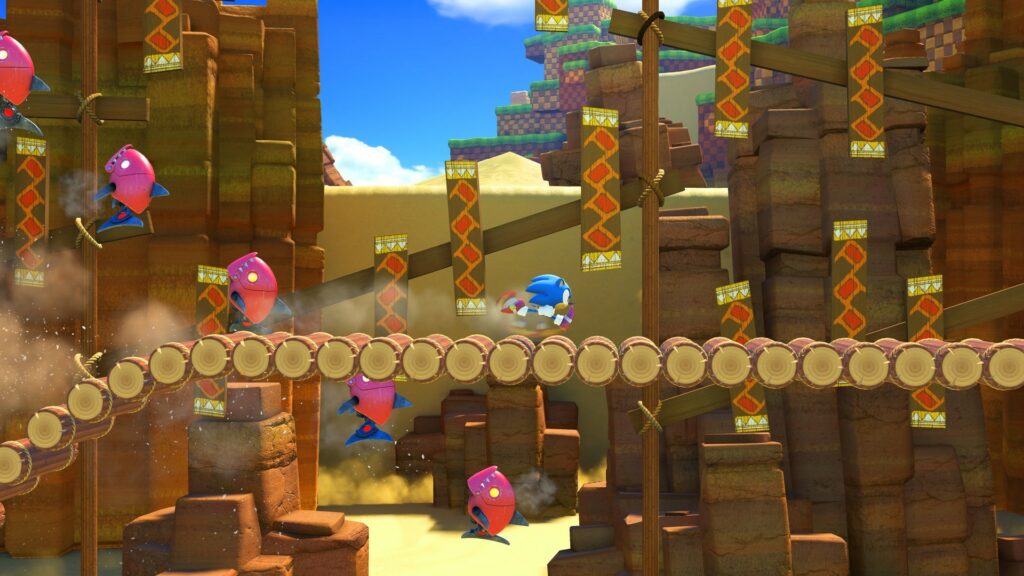
Another accidentally hilarious part of the game is the incredibly edgy antagonist. I love the franchise but they haven’t moved on from the broody, angsty character trope that was so popular in the 2000s. Sure, it’s a little lame, but it takes me back to a simpler time in my life where I thought any character with a black and red colour scheme was just the coolest.
Of course, if you go into the game expecting a AAA experience then you may not have a great time. But if you expect ridiculousness, then you may just find yourself enjoying it much more than you thought you would.
- Confusing but accidentally hilarious plot
- Exhilarating speed (it’s a Sonic game after all!)
- Funky music
Resident Evil 6
Resident Evil 6 is easily the most hated entry in the series and is often quoted as the breaking point of Resident Evil. What started out as a positive turn for the series with Resident Evil 4, turned to boulder punching in 5, and then running, gunning, driving, and piloting in 6. Original fans of the series hated how combat-driven the title had become. While new players didn’t understand what the heck was going on. But there’s a small percentage of fans in the middle – myself being one of them – who doesn’t mind the extravagant explosion that Resident Evil 6 is. Four different campaigns? Leon and Chris finally meet? What’s there to hate?
Gameplay-wise, Resident Evil 6 really isn’t bad. It’s got a behind-the-shoulder camera, lots of weapons, and even more enemies to shoot. Loveable characters from the series are brought back, and the plot is about what you’d expect from a Resident Evil game. The real fun comes from the co-op aspect, though. While co-op was present in Resident Evil 5, it feels much stronger in this entry. I have fond memories of screaming at my sister to protect me while I land a plane, and her shouting at me to stop swerving the car while she’s trying to shoot.
“Resident Evil 6 might be easy to hate, but it’s also easy to love.”
The downside to having such a strong focus on co-op is that the single-player experience is downgraded. The AI is stupid (but hey, they don’t steal herbs and ammo like certain sisters do) and the quick time events are significantly less exciting. Co-op aside, bosses are especially annoying with their mutations; somehow, every version is more annoying than the last. It’s incredibly easy to die from the various obstacle courses, and the chase scenes aren’t much better.
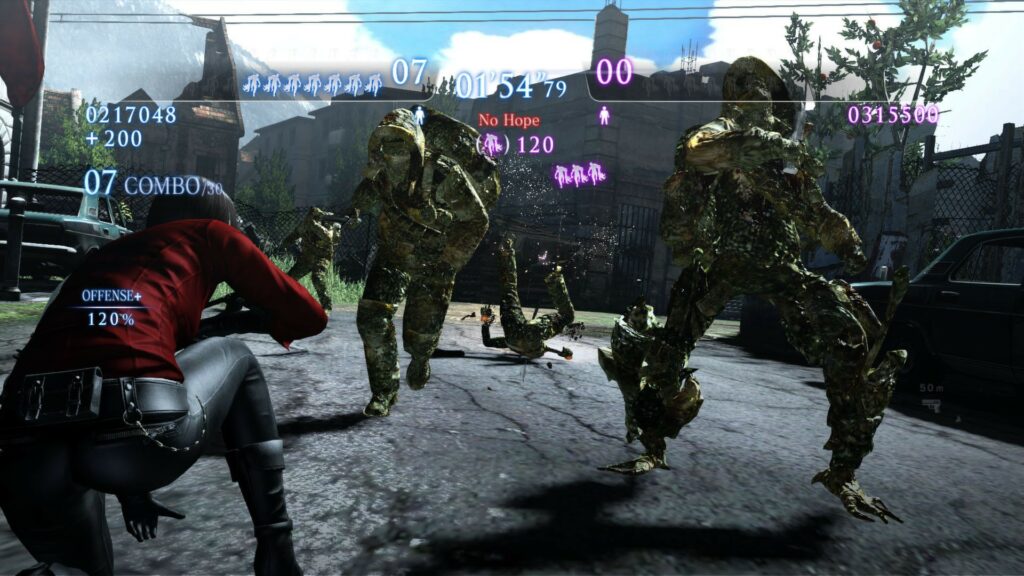
That being said, I still enjoyed Resident Evil 6 solo. There’s something so satisfying about seeing old characters finally meet and work together. The multiple campaigns all have separate styles, and all six main characters have varying gameplay. It’s fun unlocking perks and finding the hidden emblems. Tough bosses turn into putty once you learn their weaknesses, and there are harder difficulties to try if the game’s getting too effortless.
Resident Evil 6 might be easy to hate, but it’s also easy to love. I highly recommend grabbing a friend and trying out the extensive co-op, or, if you’re simply a fan of the RE: Verse, to play for the story. Ever wonder how Chris became so jaded? What’s Sherry up to these days? Just how shiny can Leon’s hair get? Don’t listen to the reviews—play Resident Evil 6!
- A long game with a ton of replayability
- Brings back beloved Resident Evil Characters
- Super fun co-op
Legend of Zelda: Oracle of Seasons
Outside of the world of the Philips CD-I games, it’s really hard to talk about a Legend of Zelda game that everyone hated. Even divisive entries in the series, such as Adventure of Link and Skyward Sword definitely have their fans. However, when it comes to a certain duology, there’s definitely one game that generally gets more love among the Zelda fandom. In the Oracle series, the definite frontrunner is Oracle of Ages. People cite its emphasis on puzzles and the deeper NPC characterisation as reasons for its superiority.
Although, this makes me wonder if I played the same duology as everyone else. While I do enjoy both games, I definitely prefer Oracle of Seasons. To me, Seasons was based around exploration whereas Ages was focused on fetch quests or event flags; you do a thing to activate an NPC, who will need something from you, which opens up a new area.
While Seasons has a couple of examples of this, those instances don’t feel nearly as forced or as intrusive. Usually, progressing in Seasons follows you receiving a new item, and then seeing where it takes you. Depending on what you decide to do, this can absolutely bring you to new areas early. And when it comes to Zelda games, I will definitely take exploration over endless minigames and fetch quests.
“Ignore all the hype about Ages, and don’t count Seasons out.”

Likewise, I feel that Seasons handles its core gimmick better than Ages does. Ages involves you travelling through two different time periods, but the gimmick doesn’t really feel fully developed. Time travel tends to be finicky in video games, but for a lot of the game, the fact that it’s time travel seems to be incidental. There are a couple of instances where you do something in the past to impact the future (plant a tree, plant some vines), but they are relatively few and far between. Instead, it’s primarily used to simply avoid obstacles.
In contrast, Seasons has you change the seasons of each area in the game, with each particular season bringing its own solutions to puzzles. You need to figure out what each season does as you gain its ability, and figure out how each one changes the landscape in order to progress or discover secrets. The Tarm Ruins utilises this perfectly. It isn’t just my favourite area in the duology, rather one of my favourite areas in the entire Zelda franchise.
When it comes down to it, the games are definitely best played together, and I thoroughly recommend both. But if I had a piece of advice? I’d say ignore all the hype about Ages, and don’t count Seasons out.
- More organic exploration, less plot coupon and fetch quest based progression
- Better use of the main gimmick
- I don’t actively want to punch the Subrosians, unlike the Tokay
Prince of Persia: Warrior Within
One of my earliest memories of getting a PlayStation 2 in my youth was the hours I spent in Ubisoft’s reimagining of the Prince of Persia series. The Sands of Time easily became one of my favourites, which I played to completion multiple times, quoting the opening monologue on repeat to this day.
So when the game branched out into a full franchise, I jumped on that in an instant, diving deep into the lore and getting lost in the gameplay. The sequels definitely had mixed results, both from gamers and critics alike; most quoting both as being nowhere near as good as the original. Universally the big one everyone shunned was the second game, Warrior Within, due to its shift in tone and change in gameplay. However, this became my favourite of the series.
As much as I enjoyed the light-hearted, goofy tone of the first game, having the setting go beyond that felt like a natural progression to me. The Prince had been through literal hell and he was the only one to remember it. So it only felt right he’d be conflicted with his emotions and be more battle-hardened. His skills would improve and he’d be more prepared for whatever threat was on the horizon.
“I will always have a soft spot for Warrior Within because it took more risks.”
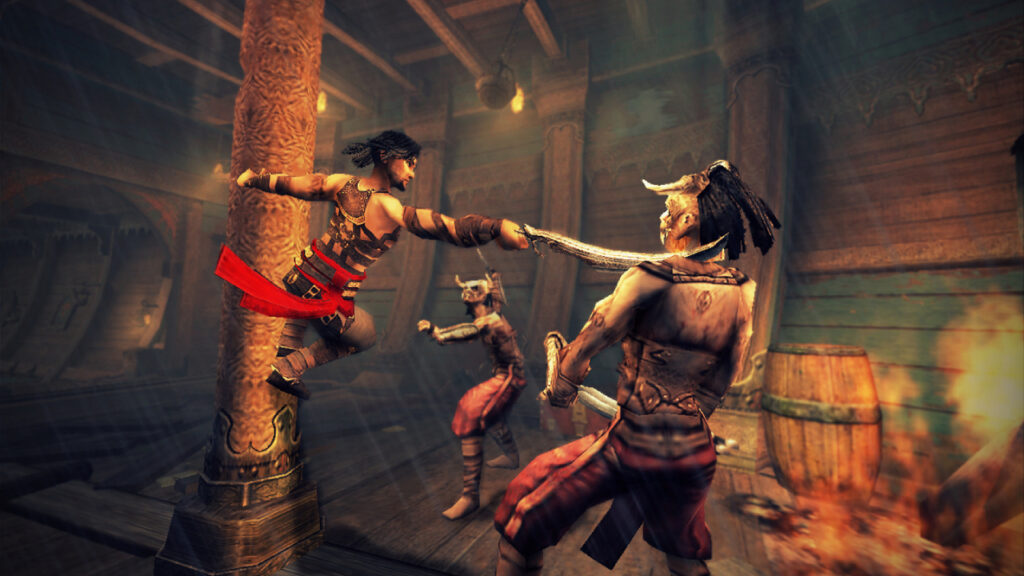
I also enjoyed how the stakes were raised. The mistakes in the first game come back to haunt you as a nearly unkillable foe stalks the player like Nemesis or Mr X in the Resident Evil series. The frightening Dahaka added a layer of suspense and horror to the platforming, making it more important to get a better look at your surroundings to find the quickest and safest route to your next objective.
The combat also feels very smooth, in comparison to Sands of Time. It allowed more variety to battles beyond simple button mashing and added a flare of style to show how the Prince’s fighting prowess had improved. The shift in music always had me confused as heavy metal chants in the background of a run-down island fortress. Fortunately, outside of these small instances, Warrior Within is the game that draws me in the most, even to this day.
I will always have a soft spot for Warrior Within because it took more risks. The implemented changes help shape the gameplay further than its humble beginnings to make it stand on its own. It may not have as much humour, but it has its own charm that sweeps me up like sands through an hourglass.
- Darker tone from the first and third game that feels like natural progression
- More fluid and fun combat
- Added suspense/horror elements
- Variety in levels based on time travel mechanics

